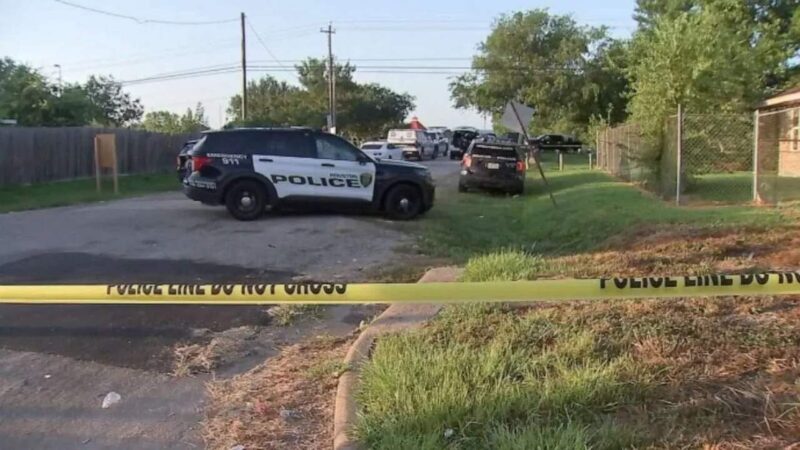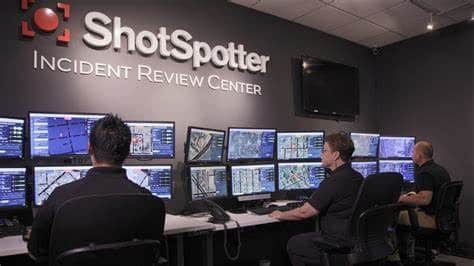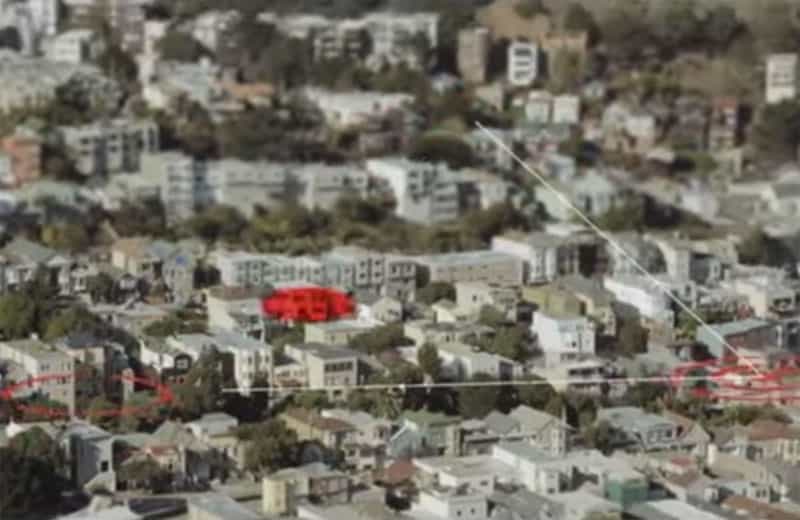Will City Terminate Multi-Million Dollar Contract?
For the past three years, the city of Houston has been utilizing its "ShotSpotter" technology to arrest and mitigate gun violence within its communities. However, the Houston Chronicle and Channel 13 News have recently published recent reports indicating that despite the significant financial investment in this program, it has yet to yield substantial results.
The ShotSpotter technology predominantly operates within the Black and brown communities. Unfortunately, the findings of the report not only suggest that the program's impact has been minimal, but it has also heightened feelings of discomfort within these communities regarding their relationship with law enforcement.
Shotspotter alert which records sounds of gunshots across the city is perhaps the highest priority call besides a citywide assist call when a police officer has been hurt, shot, or shot at.
"No matter what other call you're on if a Shotspotter alert drops, you go," said Doug Griffith, Houston Police Officers' Union President. "You're not going to that burglary report. You're now going to Shotspotter."
Last year, the report looked at 6,300 alerts made between December 2022 and March 2023.
Of those, more than 80% were canceled, marked as unfounded, or dismissed as information calls because officers couldn't find anything.
At a recent public meeting centered on the topic of ShotSpotter, the president of the company took the opportunity to address the concerns raised regarding the technology. With utmost confidence, the president assured the attendees that the accuracy of the ShotSpotter technology goes above and beyond the stipulated requirements as outlined in the contract.
"ShotSpotter is not a perfect technology; I don't know that any technology is perfect," SoundThinking President Ralph Clark said.
Concerns have been raised by supporters regarding the potential repercussions of discontinuing the use of ShotSpotter technology. The supporters express worry that such a decision could result in a surge in acts of violence.
City police installed the ShotSpotter pilot program within a five-square-mile region of Houston's Southeast neighborhoods which includes Old Spanish Trail(OST), South Union, and Sunnyside. The system covers key sections of northeast Houston in the historic 5th Ward and further East and West, parts of the city where several shootings and other related violence are reported to police.
However, others argue that allocating the financial resources currently allocated to ShotSpotter towards alternative endeavors, such as the implementation of additional license plate reading technology, could contribute to a more effective and efficient response to incidents of carjacking.
ShotSpotter Touts Success of Saving Lives in Houston
Tom Chittum writes in Soundthinking blog, "Like many ShotSpotter critics, the Chronicle's Editorial Board also entirely overlooks the system's greatest use: saving lives. That is the reason police prioritize gunfire alerts."
"The reality, Chittum insisted, 'is that most shooting incidents are never reported to the police through 9-1-1. ShotSpotter fills that gap. Thankfully not all shootings result in wounded victims, but when they do, speed and precision matter. ShotSpotter's ultimate value can be measured in the stories of those lives saved."

Houston Police Respond to Shooting Scene Alerted by Shotspotter. Photo by Soundthinking.com
Pure Justice Activist
RoShawn Evans has long been an outspoken opponent of "ShotSpotter," a technology granted a five-year contract by the City of Houston in January 2022. This controversial system is commonly placed in areas considered "high crime," and it operates by detecting the sound of gunfire, promptly notifying law enforcement agencies of an approximate location.
SoundThinking, the new company name for ShotSpotter, claims on its website that the tool has a 97% accuracy rate. But Evans, the co-founder of Pure Justice, questions its accuracy and wants the $3.5 million paid by Houston to be used in other ways.
"I watched a car backfire all the way up the block that could set off ShotSpotter. Fireworks could set it off," Evans told Channel 13 News. "We should be using this money to address people's food insecurities, mental health, and housing. We do not wish to see any more money spent in programs that open the floodgates for mass incarceration."
Another major concern Evans has is whether false alerts could lead to innocent neighbors being profiled, searched, and arrested by police. He said the device is connected to main intersections and posted on light posts in Black and brown communities like Sunnyside, Greenspoint, and Southside.
Legal Discrimination
"The problem with 'ShotSpotter' is it opens the door for legal discrimination,'' Evans said. "That 0.5-mile radius may not seem like that big of an area. But it is, and they can check anybody in that area if shots supposedly went off. They could be incarcerated for something completely different, like possession of paraphernalia."
Andy Kahan, who is the director of victim services and advocacy for Crime Stoppers, is a supporter of "ShotSpotter." He believes it helps prevent crime and reduces response times for police.
"Police get instant notification that there's gunfire within a vicinity, as opposed to waiting for a human being to take the initiative. A lot of people don't want to get involved, and I get that. They're scared, and they don't want to notify law enforcement. So at least technology gives them the opportunity to proactively act instead of reactively," Kahan explained to the reporter.

ShotSpotter Incident Review Center. Photo by Shot Spotter Media
Shotspotter Terminated in Large Cities
According to data analyzed by 13 Investigations, less than 5% of nearly 4,395 alerts between December 2020 and September 2022 resulted in an arrest. Other cities, such as Dayton, San Antonio, Charlotte, and New Orleans, have terminated their partnerships with ShotSpotter after citing similar numbers and concerns.
Chicago's $49 million contract will end on Sept. 22 after using the gunfire detection system for about six years. Some believe the catalyst for this decision came from a chase and the deadly police shooting in 2021 that started after a ShotSpotter alert.
During their investigation, Houston Chronicle's Yilun Cheng diligently monitored the city council meetings where the Houston Police Department (HPD) provided updates on their program. Recognizing the significance of the reports, Cheng developed concerns regarding the program's outcomes, prompting them to pursue additional information and data.
Upon extensive review, Cheng unearthed compelling data that shed light on the matter:
- Between December 2020 and March 2023, a total of approximately 6,300 alerts were registered.
- Alarming as it may be, over 80% of these alerts resulted in cancellation, being labeled as unfounded or dismissed as mere informational calls.
- A considerable subset of cases were closed due to the officers' inability to substantiate the reported incidents.
- In one report presented to the city council last February, HPD disclosed that merely 99 arrests and 126 charges were recorded out of the staggering 5,450 alerts. To put this into perspective, a paltry half of these charges constituted misdemeanor offenses.
- An examination of the prevalent misdemeanors reveals that the most frequently occurring violation was the illegal discharge of a firearm. These findings underscore both qualms and questions surrounding the efficacy and impact of the shotspotter program.
There is more:
"Another concerning finding in this story: not only is it not making a difference when it comes to curbing violent crime, it's actually, in many cases, distracted police officers from responding to other traditional 911 calls," Cheng said. "ShotSpotter has received criticism over the past 20 years. Those concerns range from privacy concerns to the risk of over-policing in Black and brown communities, and some people claiming there are too many false positives."
Houston Mayor John Whitmire referred questioning about the ShotSpotter to police chief Troy Finner
Contributing reporter and Associate Editor Clarence Walker can be reached at [email protected]

